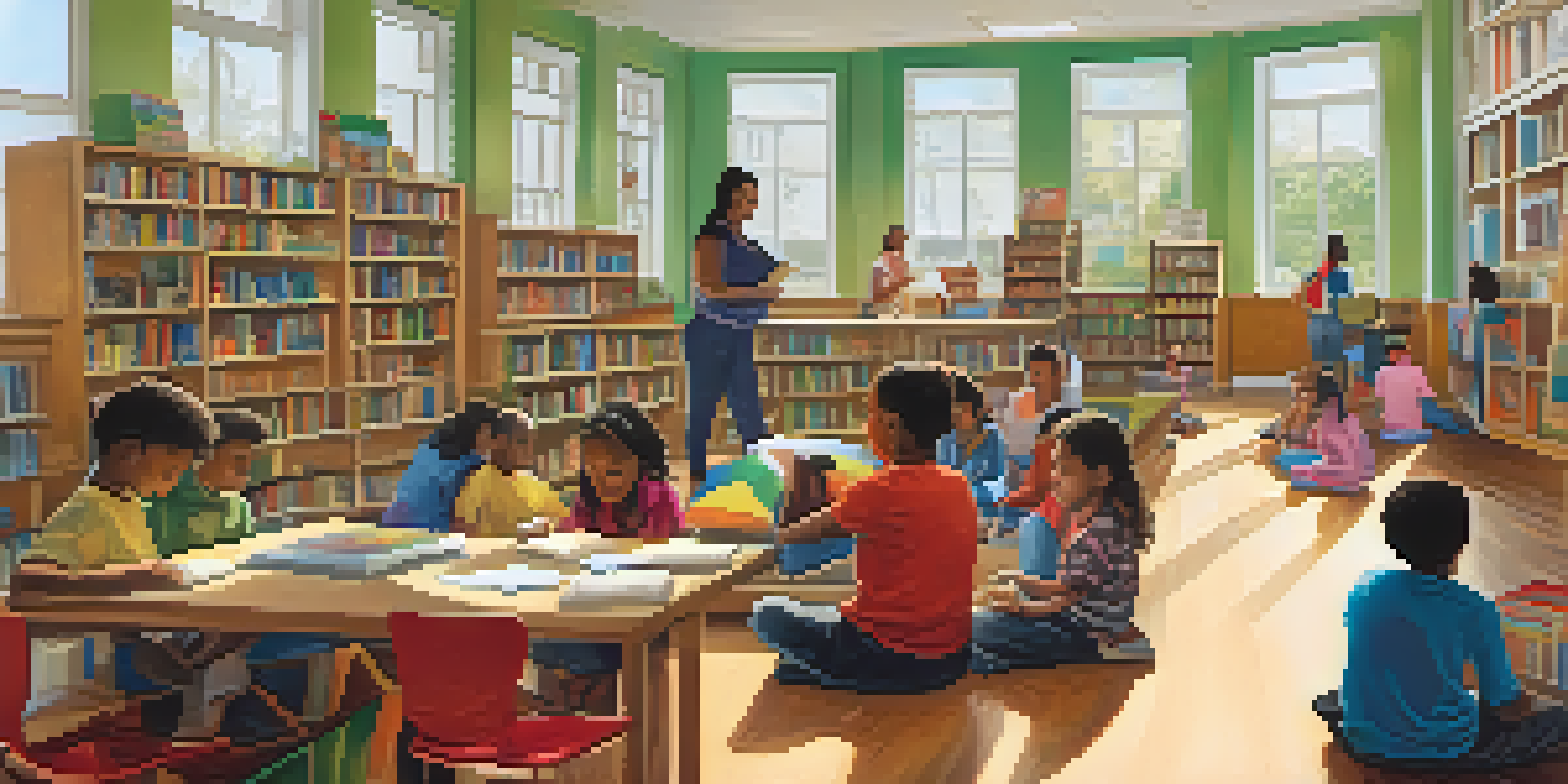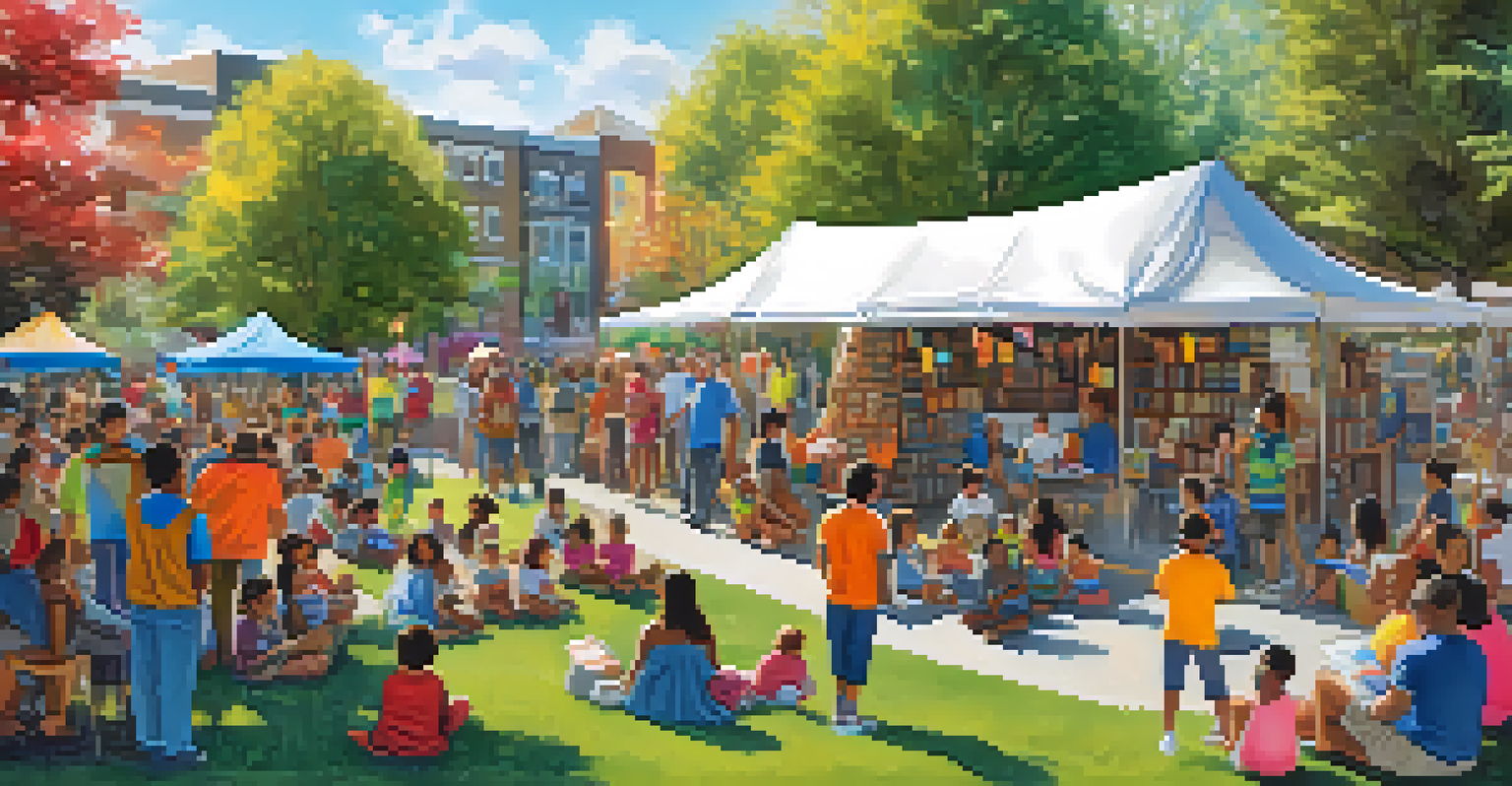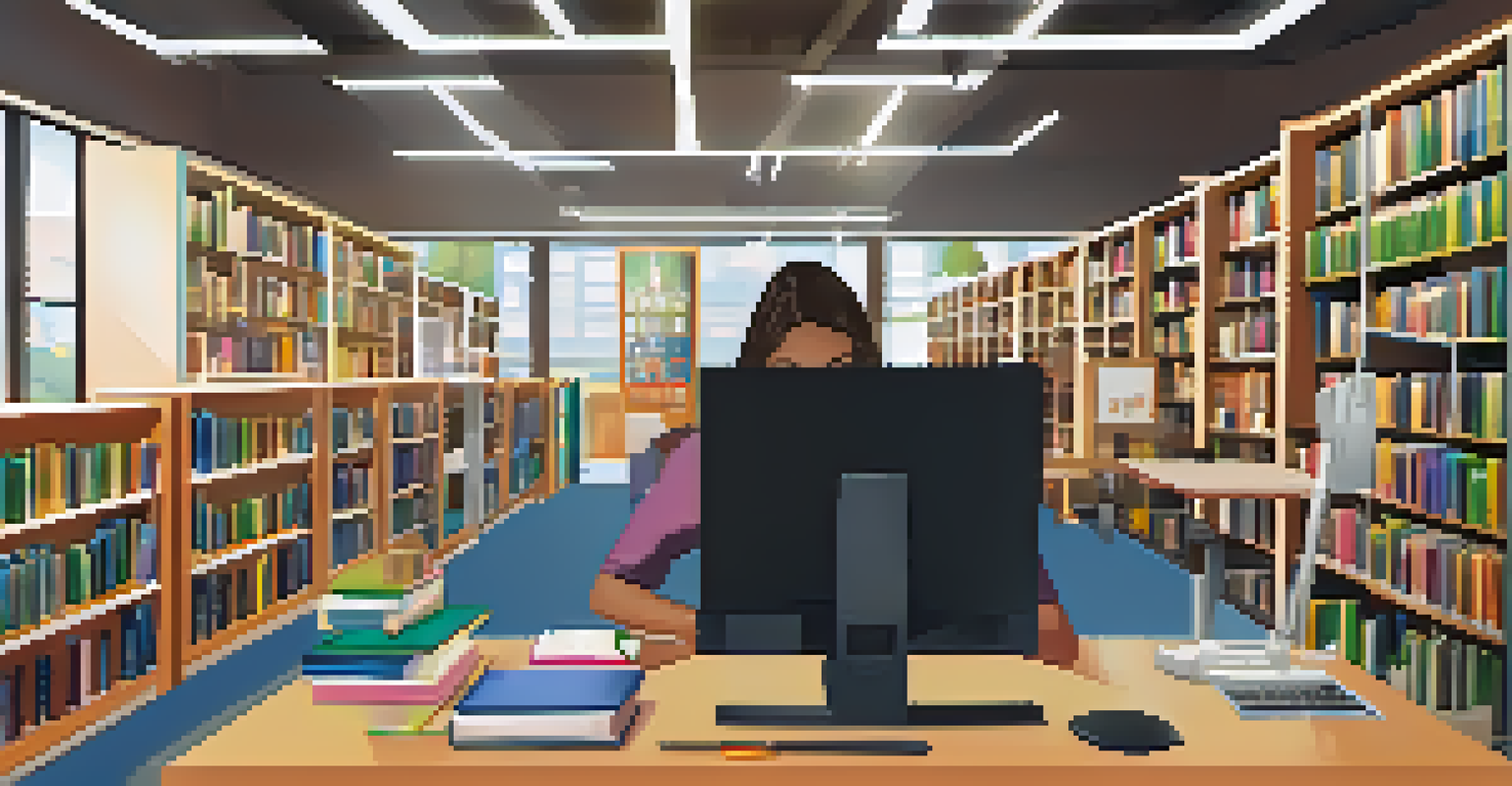The Role of Detroit's Libraries in Community Development

Libraries as Community Hubs for Learning and Growth
Detroit's libraries serve as vital community hubs, offering a range of resources that foster learning and personal development. They provide access to books, technology, and educational programs that cater to diverse age groups and backgrounds. This inclusive environment encourages people to gather, share ideas, and participate in community activities, ultimately strengthening social bonds.
Libraries are not just about books; they are about creating community.
These libraries are not just about reading; they're about providing space for workshops, classes, and seminars that focus on various skills, from financial literacy to digital skills. For instance, many libraries host events where local experts share knowledge, empowering residents to improve their lives and communities. This kind of engagement transforms libraries into active participants in local development.
Moreover, libraries often collaborate with local organizations to extend their reach and resources. By partnering with schools, nonprofits, and businesses, they create tailored programs that address specific community needs. This collaborative spirit enhances the library's role as a cornerstone of community development, making it indispensable to Detroit's growth.
Promoting Cultural Awareness and Inclusivity
Detroit's libraries are a melting pot of cultures, reflecting the city's rich diversity. They host multicultural events and programs that celebrate various traditions, helping to foster understanding and respect among residents. This cultural awareness is essential in building a cohesive community where everyone feels valued and included.

By offering materials in multiple languages and providing resources for immigrant populations, libraries play a crucial role in supporting newcomers. These efforts help bridge gaps, making it easier for individuals to integrate into the community and access essential services. Ultimately, this inclusivity bolsters community solidarity and resilience.
Libraries as Community Learning Hubs
Detroit's libraries offer vital resources for personal development and community engagement through workshops and collaborative programs.
In addition to promoting diversity, libraries also serve as platforms for local artists and creators. By hosting art exhibitions, performances, and literary events, they provide opportunities for individuals to showcase their talents while enriching the community's cultural landscape. This vibrant exchange of ideas not only enhances the library experience but also encourages a sense of belonging among residents.
Supporting Economic Development through Resources
Detroit's libraries contribute significantly to economic development by offering essential resources for job seekers and entrepreneurs. They provide access to computers, internet, and databases that individuals can use to search for jobs, create resumes, and apply for positions. This support is crucial in a city where economic recovery and growth are ongoing challenges.
The future belongs to those who believe in the beauty of their dreams.
Additionally, many libraries offer business development resources, including workshops on entrepreneurship, marketing, and financial management. These programs equip aspiring business owners with the knowledge and tools they need to succeed. By fostering a spirit of entrepreneurship, libraries help stimulate local economies and create job opportunities.
Moreover, libraries often collaborate with local chambers of commerce and economic development organizations to provide targeted support for businesses. This partnership approach ensures that the resources libraries offer align with community needs, making them effective players in Detroit's economic landscape.
Enhancing Access to Technology and Digital Literacy
In an increasingly digital world, access to technology is crucial for community development. Detroit's libraries bridge the digital divide by providing free access to computers, high-speed internet, and essential software. This access empowers residents to engage with the digital landscape, whether for education, job searching, or staying connected with loved ones.
Furthermore, libraries offer digital literacy programs designed to teach essential skills, such as navigating the internet, using software applications, and understanding online safety. These workshops target various age groups, from children to seniors, ensuring everyone has the opportunity to participate in the digital age. This focus on education enhances overall community engagement and empowerment.
Promoting Inclusivity and Diversity
By hosting multicultural events and providing resources for immigrants, Detroit's libraries foster cultural awareness and community solidarity.
By equipping residents with the skills and tools they need to thrive in a digital world, Detroit's libraries play a pivotal role in leveling the playing field. As community members gain confidence in their technological abilities, they are better positioned to seize opportunities and contribute to the city's ongoing development.
Fostering Civic Engagement and Community Participation
Libraries in Detroit encourage civic engagement by providing resources and programs that promote community participation. They often host town hall meetings, forums, and discussions that allow residents to voice their opinions and engage with local leaders. This participatory approach fosters a sense of ownership and accountability within the community.
In addition to facilitating discussions, libraries offer resources related to voting, local government, and civic responsibilities. They provide information on how to register to vote, understand ballot measures, and engage with elected officials. By empowering residents with knowledge, libraries play a vital role in strengthening democracy at the local level.
Moreover, libraries serve as spaces for volunteer opportunities, connecting residents with local nonprofits and community organizations. These partnerships not only enhance community service efforts but also create lasting connections among residents. By fostering a spirit of collaboration, libraries contribute to a more engaged and active community.
Addressing Social Issues and Community Challenges
Detroit's libraries are on the front lines of addressing pressing social issues, such as homelessness, mental health, and education disparities. They provide safe spaces for individuals in need, offering resources and referrals to local services. This support is invaluable for those seeking help and contributes to a more compassionate community.
Many libraries also implement programs designed to tackle specific social challenges. For instance, some offer literacy programs for adults, helping them gain essential reading and writing skills. These initiatives not only empower individuals but also work towards breaking the cycle of poverty and improving overall community well-being.
Supporting Economic Growth and Skills
Libraries contribute to economic development by providing job-seeking resources and entrepreneurship workshops for local residents.
By collaborating with social service agencies and community organizations, libraries expand their capacity to address complex issues. This holistic approach enables them to provide comprehensive support, making libraries indispensable in the fight against social challenges in Detroit.
Strengthening Community Identity and Pride
Detroit's libraries play a significant role in fostering community identity and pride. They often feature local history collections, showcasing the city's rich heritage and cultural milestones. By celebrating local achievements and stories, libraries help residents connect with their roots and instill a sense of pride in their community.
Additionally, many libraries organize events that highlight local authors, artists, and musicians, providing platforms for residents to share their talents. These events not only entertain but also reinforce a shared sense of belonging. When people come together to celebrate their community, it strengthens the bonds that hold them together.

As libraries continue to champion local culture and history, they contribute to a vibrant community identity. This emphasis on local pride encourages residents to invest in their neighborhoods, ultimately leading to a more cohesive and resilient Detroit.